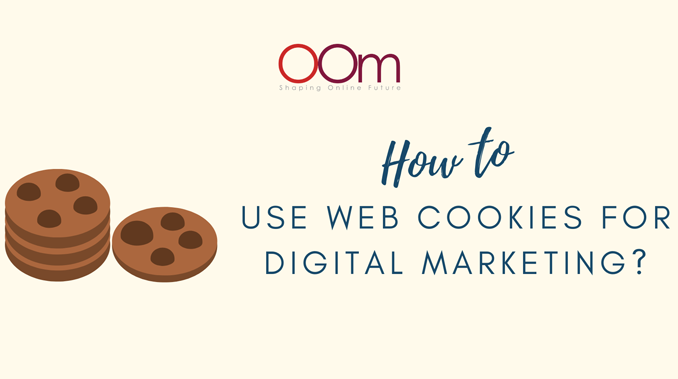
Web cookies—as delicious as it sounds, they aren’t the bite-sized snacks you all know and love. In the digital marketing industry, web cookies, also known as Internet or HTTP cookies, are small pieces of data stored in a person’s device or computer. You can use them to your advantage by gathering information from visitors on your website.
You have probably seen web cookies from countless websites already. A web page will ask your permission to enable cookies. If you accept, the web page will continue to gather information from your computer or device as long as you are present.
They may seem invasive, but web cookies are 100% safe and will not invade your private information for whatever reason. However, the only danger you should be aware of is the fact that hackers can steal cookies and use sensitive data for personal gain.
Nonetheless, web cookies are safe, as long as your network security is well-secured against hackers and malware. The problem is, when it comes to using web cookies for , not everyone has the same thought. For that reason, you need to use web cookies for digital marketing the right way.
Here’s a brief guide to using web cookies!
How To Use Web Cookies?
1. Earn Trust
The purpose of using web cookies is to gather customer information and utilise such data in your digital marketing campaigns. With the help of Internet or HTTP cookies, you can obtain information from visitors on your website and track their online activities to discover more about their purchasing behaviour and habits.
However, the very reason for using web cookies is also why some people are afraid of enabling such cookies on their computer or device. Privacy and security are an issue in this day and age, especially if you consider the dire consequences of malware and hacking. In that case, the solution is to earn trust.
Establish credibility by creating a high-quality website so visitors can trust you to enable cookies on their phone or computer. When it comes to earning trust, little actions go a long way.
For example, use high-quality images on your website to establish a professional brand image. You could also ensure your site is HTTPS secure so visitors can feel free knowing their private information is safe. Furthermore, build your reputation by maintaining a consistent voice and tone when creating content for your website.
In short, earning trust may take quite a while. You may not get it right the first time, but if you continue to engage with your visitors, they will soon trust you enough to enable cookies on your website.
2. Gather Essential Information
Once you have their trust, gathering information from your target audience is a cakewalk. But first, you need to know what information is worth obtaining from visitors on your website.
Perhaps you could start with the following essential variables that will benefit your target audience research, including:
- Age
- Location
- Gender
- Past online activities
- Social media behaviour
- Previous search engine queries
By gathering information from your website visitors, you will know more about them and how they pursue their online activities. As a result, you target specific audiences for your , earn clicks, and attract visitors.
3. Conduct A Retargeting Campaign
Web cookies and retargeting go hand in hand like peanut butter and jelly. The objective of retargeting is to track users and engage with them, even if they are not present on your website. How does it work? Web cookies, of course!
The goal of retargeting is to direct your focus to the right people who are more likely to be interested in your business. To do so, use web cookies to target specific users (with their consent) and send them ads based on their interests, purchasing habits, and behaviour.
Imagine this scenario: you visited an online store and decided to sign up for an account. In the process, the website has asked you to enable cookies to improve your experience whenever you log in. After exiting the site and transferring to other web pages, you spot ads that caught your interest.
It may seem creepy at first, but don’t worry. Your private information is safe! Web cookies are merely a tool for retargeting. Consider using them to your advantage so you can improve your SEO and come up with better content for your target audience.
Conclusion
Regarding web cookies, people have no reason to worry. As long as you are following the law and protecting your customers’ privacy, you can use web cookies for digital marketing to gain the upper hand over your rivals. Try it out and use web cookies for various marketing strategies, such as email marketing and retargeting!
For more tips and tricks, contact our at 6391-0930.

Leave a Reply